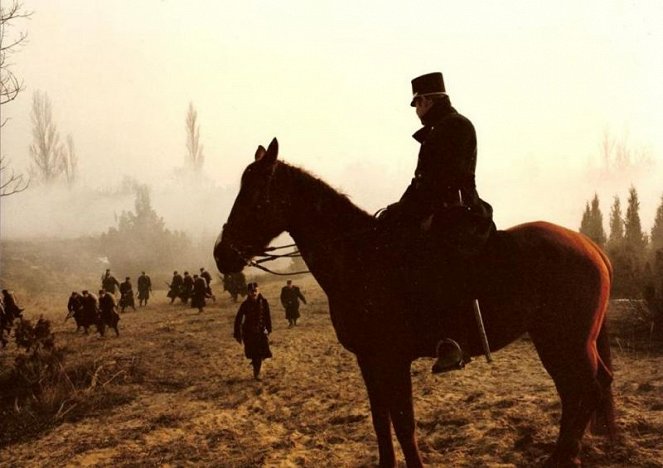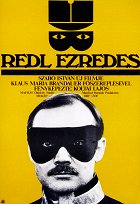Directed by:
István SzabóCinematography:
Lajos KoltaiComposer:
Zdenkó TamássyCast:
Klaus Maria Brandauer, Gudrun Landgrebe, Hans Christian Blech, Armin Mueller-Stahl, Jan Niklas, László Mensáros, Tamás Major, Károly Eperjes, Péter Andorai (more)VOD (2)
Plots(1)
The film, which has been produced by the free utilization of different literary sources, is a depiction of the cold art-nouveau world of a progressive Austro-Hungarian Monarchy at the beginning of the century. Alfred Redl, the offspring of an Ukrainian family of railway-men, advances to become a colonel and later the chief of the intelligence service of the Monarchy. The film portrays the psychological background of this breathtaking career, and the character of a "man without a face". Already as a young boy, Redl writes a poem of praise about the Emperor, and instead of attending his father's funeral, participates at the celebration organized for the honour of Franz Joseph's name-day by the Officer's Candidate School. All through his life, a special bond attaches him to his aristocratic school-mate, the Hungarian Kubinyi Kristóf, and his sister, Katalin. He models himself on them, trying to iron out his past and his family. Lacking on human emotions, ambition and the fervour of being a subject of the Emperor keeps the swing in his life. This double-sidedness of his mask explains his unparalleled enthusiasm at his last task: The successor to the throne asks him to organize his very own political trial, wishing to use him as a scape-goat in the death-dance of the agonizing state. (official distributor synopsis)
(more)Reviews (3)
Biographical films are either historically accurate but uninteresting from a dramatic perspective, or they are interestingly written and filmed fictions that have borrowed the name of the main character from real history. István Szabó's Colonel Redl is not a biographical film in the true sense of the word, because it is based on a play by British playwright John Osborne, who was only loosely inspired by the fate of this officer, who was once convicted of espionage. On the other hand, it does not deviate significantly from Redl's life path, and Szabó can perfectly capture the atmosphere of the time period. Under his direction, a film was created that is not necessarily flashy, but a powerful and gripping story about an ambitious man who was able to discard many inhibitions in his desire for a career, but due to his low-born background and relative poverty, he encountered much stronger and more ruthless opponents, and the wheels of history ground him down. The film's story speaks volumes about the dubious morals of the powerful at the time, and about how things work in high politics. For me, it is the pinnacle of the director's work. Overall impression: 95%.
()
While the Colonel Redl affair has excited filmmakers regularly since the 1920s, Szabó's version seems to be the last one for many years. In recent years we seem to have lost interest in the monarchy period. And yet these years are full of typically exciting cases, such as that of Alfred Redl (1864-1913). However, after being introduced to the entire loose trilogy with Klaus Maria Brandauer, I'm not particularly excited about it. As a narcissistic actor, a homosexual careerist, or a clairvoyant, he still excels at the same acting virtues, and his characters disappear into his solo performances.
()
Slightly less engaging than Mephisto, mainly due to the more stereotypical dialogue, but still a piece of excellent and intense filmmaking that, despite the announced fictional story, very authentically depicts the political pomp and intrigue in the final stages of the Habsburg monarchy. Together with Alfred Redl, an ambitious guy with good connections who has risen to the rank of colonel, we learn about the adverse effect growing power has on human personality and the racist hierarchy of the army of the time, where a person’s origin occupies a more privileged position than previous merit and advantageous acquaintances. The best scene is the dialogue about the search for a scapegoat with a suitable origin for the public intimidation process, it really gives me chills…
()
Gallery (46)
Photo © Mokép


Ads